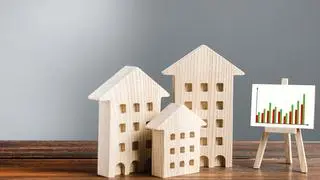Green buildings are projected to grow to 10 billion sq ft and the market for green building materials and sustainable products is expected to grow exponentially. Apart from energy savings, the use of sustainable building materials can have a significant impact on the green economic transformation of the country.
“To bring down CO2 levels in production of cement, companies such as JSW have adopted a waste utilisation process that uses by-products or waste from other industries, thus curtailing the use of carbonaceous raw materials,” said Nilesh Narwekar, CEO – JSW Cement.
Portland Slag Cement (PSC) is one such blended cement. PSC’s main component - slag - is a by-product from steel plants. Slag is a non-metallic product comprising more than 90 per cent glass, with silicates and alumino-silicates of lime. It is made by combining 45-50 per cent slag, 45-50 per cent clinker, and 3-5 per cent gypsum. Due to its range of benefits, durability and low heat of hydration, it is suitable for mass construction.
Slag plays a key role in sustainable construction as compared to pure Ordinary Portland Cement (OPC) or fly ash-based cement. Not only is PSC a green product, it has strong properties that reduce thermal cracks due to lower heat of hydration, reduce shrinkage cracks, has better resistance against chemicals such as chlorides, sulphates and carbon dioxide, and has higher long-term strength and improved durability.
In India, more than 4,300 projects with about 4.7 billion square feet of built-up area had registered for green technology as of September 2017. India’s green building market is second only to the US, and it is estimated to double by 2022 at 10 billion square feet, valued at around $35-50 billion.
Narwekar further said, “Rising awareness among consumers about the need for environmental preservation have made them conscious of the products they use. Industries, on their part, are working towards making their manufacturing processes more sustainable, earth-friendly and ‘green’.”
“Similarly, real estate developers and engineers are focusing on building green spaces in India through the use of smart concepts and green materials in the construction process. As a consequence of this shift to green building projects, we have seen a substantial growth in consumption of green cement or PSC (Portland Slag Cement). The waste utilisation process in the manufacture of PSC not only ensures conservation of natural resources, it also hugely mitigates the generation and discharge of by-products. The use of PSC is expected to grow in future and will become an integral part of India’s infrastructure sector. Reduction of carbon dioxide emissions, usage of alternate fuels, and conservation of water resources are also noteworthy points during PSC manufacturing, which makes the product green."
JSW entered the cement market in 2009 with a vision to ensure a sustainable future for the country by producing eco-friendly cement, using industrial by-products - slag. Its plants at Vijayanagar in Karnataka, Nandyal in Andhra Pradesh, Dolvi in Maharashtra and Salboni in West Bengal utilise best quality slag to produce green cement.
It has further helped in reducing the carbon footprint of the group. Not only does this ensure optimal utilisation of resources, but also reduces the ecological impact of industrial by-product dumping. JSW Cement has the capacity to produce over 11.6 MTPA. Projects such as Lodha World One, Mumbai; LNG Petronet, Dahej; Naval Dockyard, Jetty Project, Colaba Mumbai; Bangalore Metro; Port Trust (L&T and ECC geo structures), Ennore; IOCL projects, Ennore; Mumbai Metro and Mumbai Port Trust have used PSC manufactured by JSW Cement.








Comments
Comments have to be in English, and in full sentences. They cannot be abusive or personal. Please abide by our community guidelines for posting your comments.
We have migrated to a new commenting platform. If you are already a registered user of TheHindu Businessline and logged in, you may continue to engage with our articles. If you do not have an account please register and login to post comments. Users can access their older comments by logging into their accounts on Vuukle.